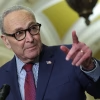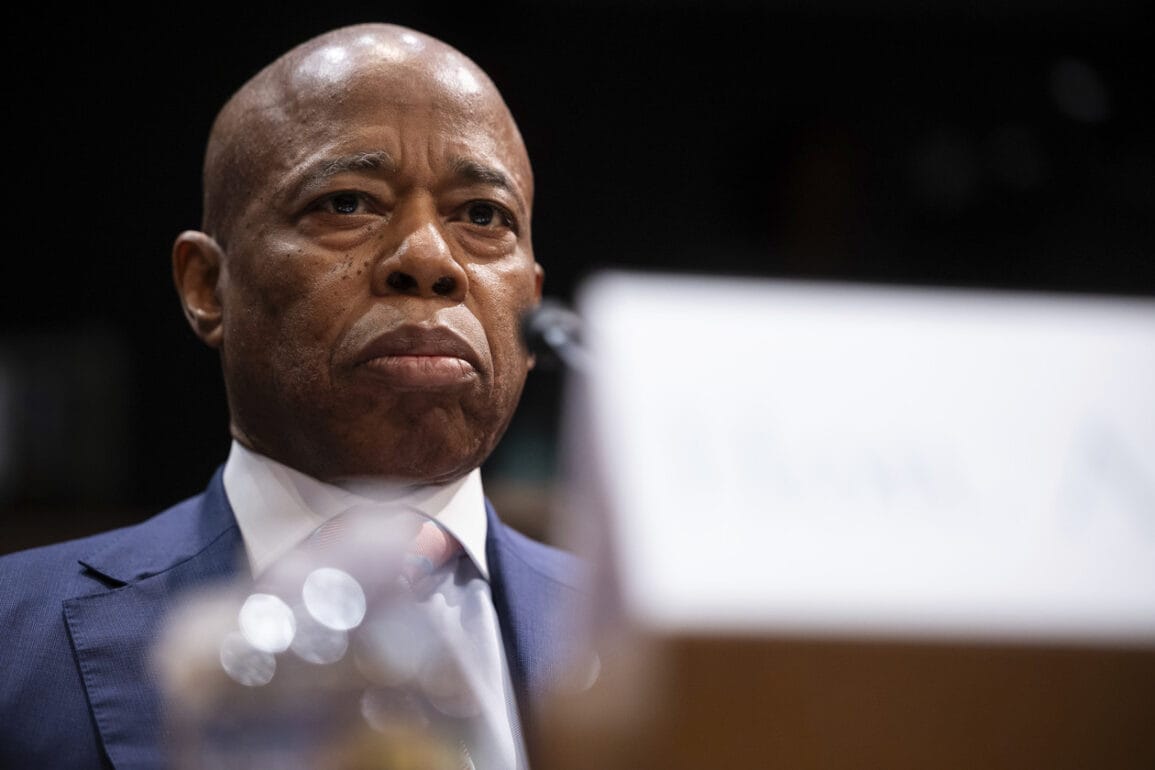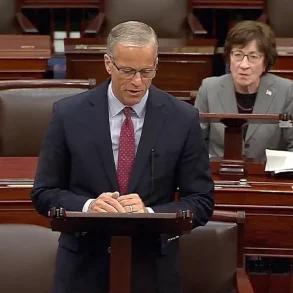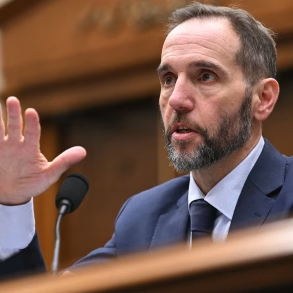In a stunning turn of events, a federal judge has permanently dismissed corruption charges against New York City Mayor Eric Adams, delivering a major blow to the Trump administration’s Department of Justice (DOJ). On April 2, 2025, U.S. District Judge Dale Ho ruled that the case, which accused Adams of bribery and wire fraud, could not be brought back in the future—a decision that has sparked heated debate about justice, politics, and power.
The Case That Shook New York
The saga began in September 2024, when federal prosecutors in Manhattan indicted Adams, marking the first time a sitting NYC mayor faced such charges in modern history. The allegations were explosive: Adams was accused of accepting over $100,000 in free plane tickets and luxury hotel stays from wealthy Turkish nationals over nearly a decade. In return, prosecutors claimed, he used his influence—first as a local official and later as mayor—to do favors, like pressuring the fire department to approve a Turkish Consulate building despite safety concerns. Adams pleaded not guilty, insisting he’d done nothing wrong.
The case loomed over Adams as he prepared for a tough reelection fight in the Democratic primary set for June 24, 2025. But just as the legal battle heated up, the Trump administration’s DOJ made a surprising move in February 2025: they asked to drop the charges. However, they wanted to dismiss the case without prejudice, meaning they could refile it later. This request raised eyebrows—and alarm bells.
A Judge’s Scathing Rebuke
Judge Ho didn’t hold back in his 78-page ruling. He rejected the DOJ’s request to keep the charges dangling over Adams’ head, calling it a dangerous power play. The Trump administration argued that the prosecution was “tainted” and that Adams needed to be free of legal trouble to help enact their immigration policies, like deportations. Ho wasn’t buying it.
“There is no evidence—zero—that [prosecutors] had any improper motives,” Ho wrote. He dismissed the DOJ’s claim that the case’s timing—nine months before the primary—was suspicious, noting it was consistent with other corruption cases. More damningly, he accused the administration of using the charges as leverage to force Adams to toe their line on immigration. “Dismissing the case without prejudice would create the unavoidable perception that the Mayor’s freedom depends on his ability to carry out the administration’s priorities,” Ho warned, suggesting it was tantamount to blackmail.
Ho’s decision to dismiss the case with prejudice—meaning it’s gone for good—ensures that Adams can’t be threatened with these charges again. While some wanted the court to force the DOJ to keep prosecuting, Ho admitted he lacked the power to do so. Still, he made it clear he saw through the administration’s excuses, calling their immigration rationale “unprecedented and breathtaking in its sweep.”
Fallout at the DOJ
The dismissal marks the first big scandal of Trump’s second term, which began just months ago. When the DOJ moved to drop the case, it triggered a revolt. High-ranking officials, including the acting U.S. Attorney for the Southern District of New York, resigned in protest, blasting the decision as a betrayal of justice. These Republican appointees wrote scathing letters accusing the administration of undermining the rule of law for political gain.
The controversy deepened when Emil Bove, a top DOJ official, claimed the prosecution hurt Adams’ ability to govern and assist Trump’s agenda. Critics, including resigned prosecutors, saw this as a quid pro quo: drop the charges, and Adams would play ball on immigration. Ho noted that after the DOJ’s move, Adams did take at least one immigration-related action aligned with Trump’s preferences, fueling speculation of a deal.
Adams’ Response—and What’s Next
Outside Gracie Mansion on April 2, Adams celebrated the ruling. “I’m pleased that our city can close the book on this,” he told reporters, holding up Government Gangsters, a book by Trump’s FBI Director Kash Patel. Adams urged New Yorkers to read it to understand “how we can never allow this to happen to another innocent American.” He apologized for the ordeal but insisted he never stopped working for the city, vowing to win reelection. “You are my North Star,” he said, addressing his constituents.
Adams’ lawyer, Alex Spiro, called the case baseless from the start. “Justice for Eric Adams and New Yorkers has prevailed,” he said. But the victory is bittersweet. The dismissed charges and Adams’ ties to Trump have left a stain on his mayorship. Polls show him trailing in the crowded Democratic primary, where former Governor Andrew Cuomo is a frontrunner. With petitions due soon and little campaigning under his belt, Adams faces an uphill battle.
A Bigger Question
Ho was careful to clarify that his ruling doesn’t prove Adams’ innocence or guilt—the charges were never tested in court. Instead, it’s a stinging rebuke of the DOJ’s tactics. The judge warned that letting the government dismiss charges to reward compliant officials “is fundamentally incompatible with the basic promise of equal justice under law.”
For now, Adams is free to focus on his campaign. But the fallout from this legal drama—resignations, accusations of corruption, and questions about political pressure—will echo through New York and Washington. Was this a win for justice, or a loss for accountability? That’s a question voters may answer in June.








